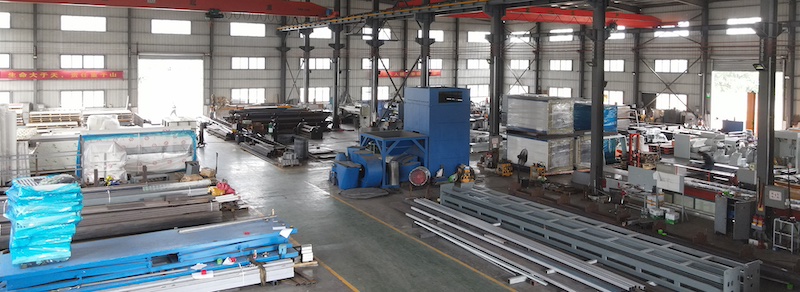The Role of Spraying Production Lines in Modern Manufacturing
Spraying technology plays a critical role in the industrial finishing process. From aluminum profiles and automotive parts to household appliances and furniture, consistent coating application is essential for both performance and aesthetics. Traditional manual spraying methods often result in uneven finishes, higher material waste, and increased labor costs.
By contrast, automated spraying systems offer a higher level of control, ensuring consistent coating thickness and quality across large production volumes. These systems also help manufacturers save resources by reducing overspray and optimizing paint usage. For industries with strict quality requirements—such as automotive, aerospace, and construction materials—an advanced spraying production line is no longer a luxury but a necessity.
Why Customization Matters
Every factory has its own production requirements, physical layout, and operational challenges. This is why the trend is shifting from standardized equipment to customized spraying production lines. A customized system can be designed to:
•Fit into the existing production space without major structural changes.
•Handle specific materials, shapes, or coating types.
•Integrate seamlessly with other stages of the production process.
•Optimize energy consumption and reduce operational costs.
For example, a company producing aluminum profiles may require a vertical spraying line to maximize space and achieve a uniform finish, while a furniture manufacturer may prefer a horizontal system tailored for wood and composite materials. In both cases, customization ensures that the spraying solution aligns with the company’s unique needs.
Boosting Manufacturing Efficiency
One of the biggest advantages of a customized spraying production line is the improvement in manufacturing efficiency. Automation reduces dependency on manual labor, shortens production cycles, and minimizes errors. According to industry reports, companies that adopt automated spraying systems see up to 30% improvement in production efficiency and significant reductions in material waste.
In addition, real-time monitoring and intelligent control systems allow operators to track coating quality and make immediate adjustments. This level of precision not only enhances product quality but also increases customer satisfaction, giving manufacturers a competitive edge in the market.
Driving Sustainability in Industrial Coating Solutions
Environmental concerns are reshaping global manufacturing. Stricter regulations on emissions, energy consumption, and waste management are pushing companies to adopt sustainable production methods. Customized spraying lines address this challenge by:
•Reducing paint and coating waste.
•Lowering energy consumption with optimized curing systems.
•Incorporating filtration and recycling systems for cleaner operations.
By implementing eco-friendly spraying technologies, manufacturers can meet regulatory requirements, improve their corporate image, and attract environmentally conscious clients.
Case Study: Foshan Happy Technology’s Vertical Spraying Line
At Foshan Happy Technology, we specialize in delivering customized spraying production lines tailored to the needs of clients worldwide. Recently, we successfully delivered a vertical spraying line for an overseas aluminum profile manufacturer.
The client faced challenges with limited workshop space and strict coating quality requirements. Our engineering team designed a vertical spraying solution that optimized space utilization while ensuring consistent, high-quality finishes. The project not only improved the client’s productivity but also reduced operational costs and energy consumption.
This example highlights how industrial coating solutions can be both practical and innovative, addressing client-specific challenges while contributing to long-term growth.
The Future of Automated Spraying Systems
Looking ahead, the demand for automated spraying systems will continue to grow as manufacturers embrace Industry 4.0 technologies. Integration with IoT, AI-based quality control, and data-driven maintenance will further enhance production reliability and efficiency.
Smart spraying systems will be able to automatically adjust parameters based on material type, product geometry, and environmental conditions. This level of intelligence will drive higher manufacturing efficiency while supporting global goals of sustainable production.
The shift toward customized spraying production lines represents a significant milestone in the evolution of modern manufacturing. By combining automation, customization, and sustainability, these systems provide industries with a comprehensive solution to today’s challenges.
At Foshan Happy Technology, we are committed to helping clients worldwide achieve better performance, reduce costs, and move toward greener manufacturing practices. With our expertise in industrial coating solutions, we look forward to shaping the future of automated spraying together with our partners.


